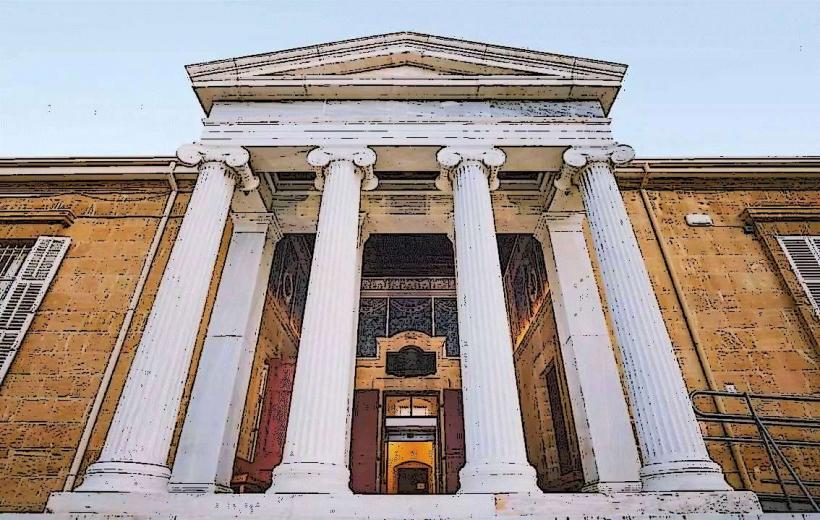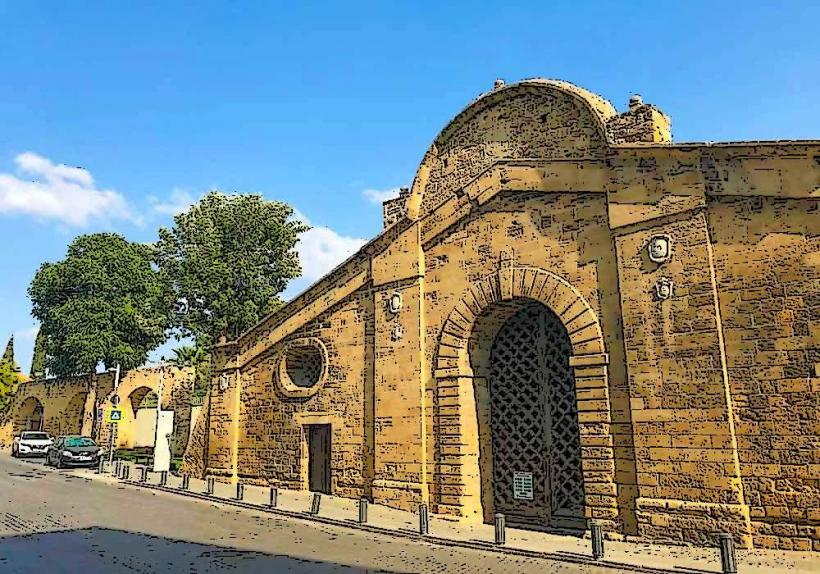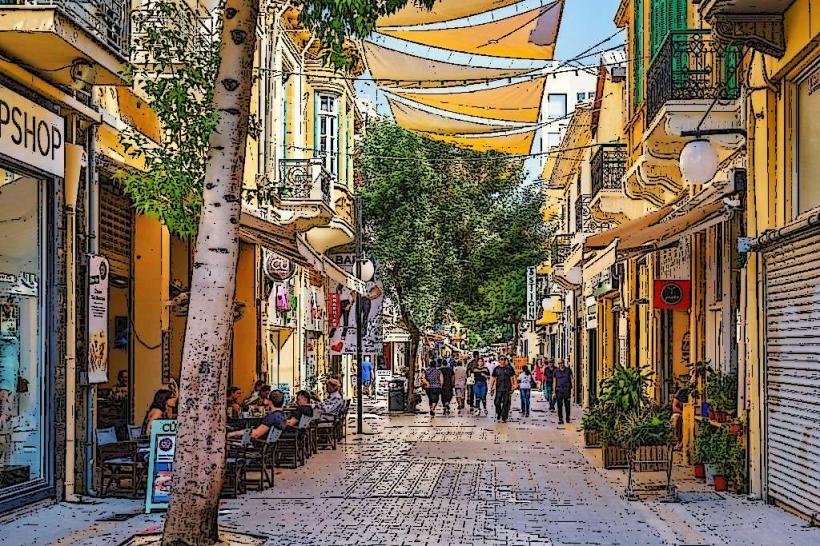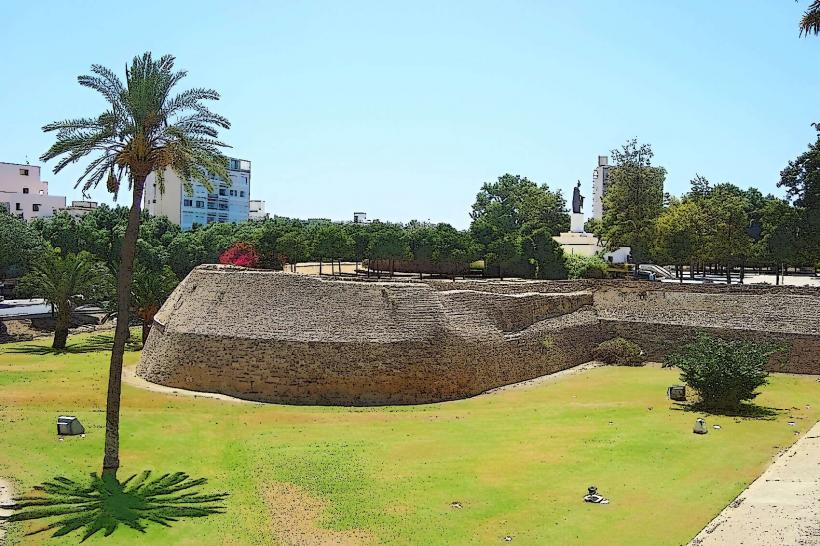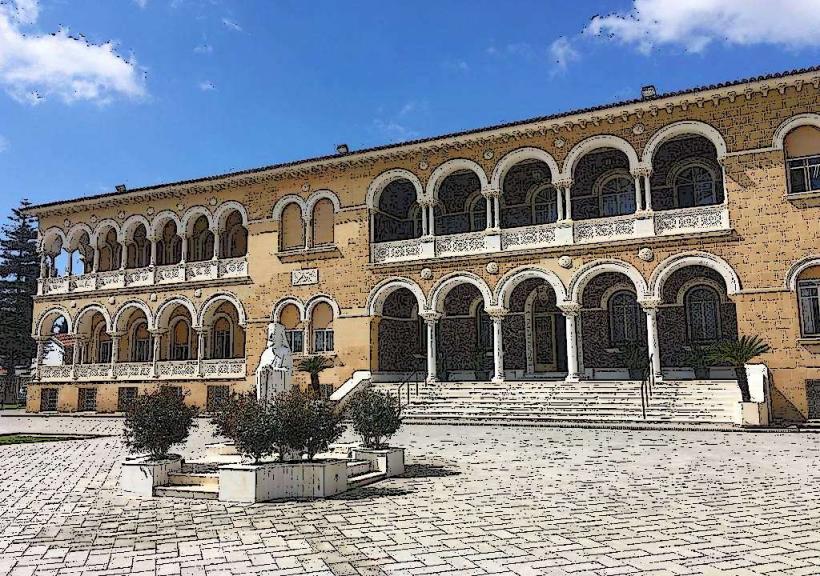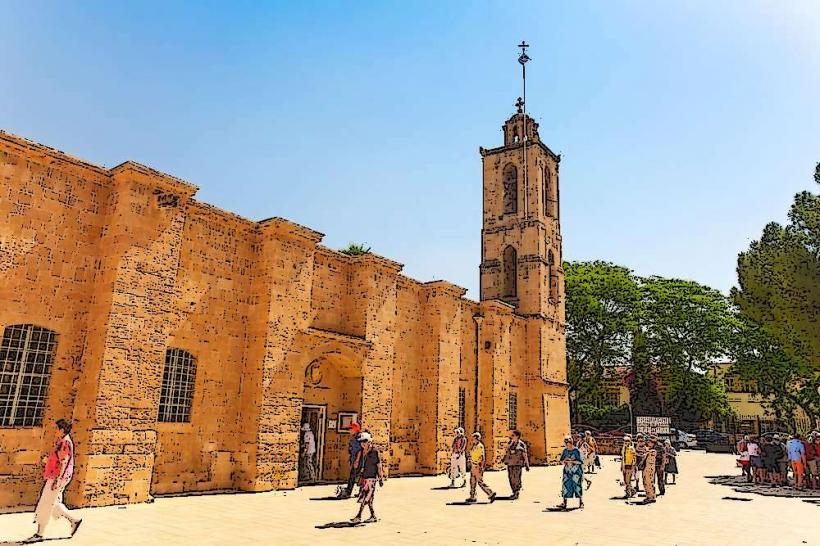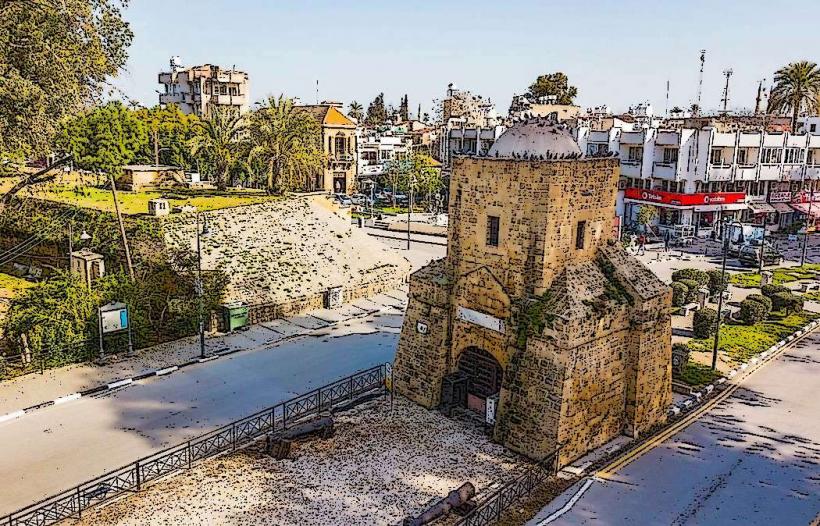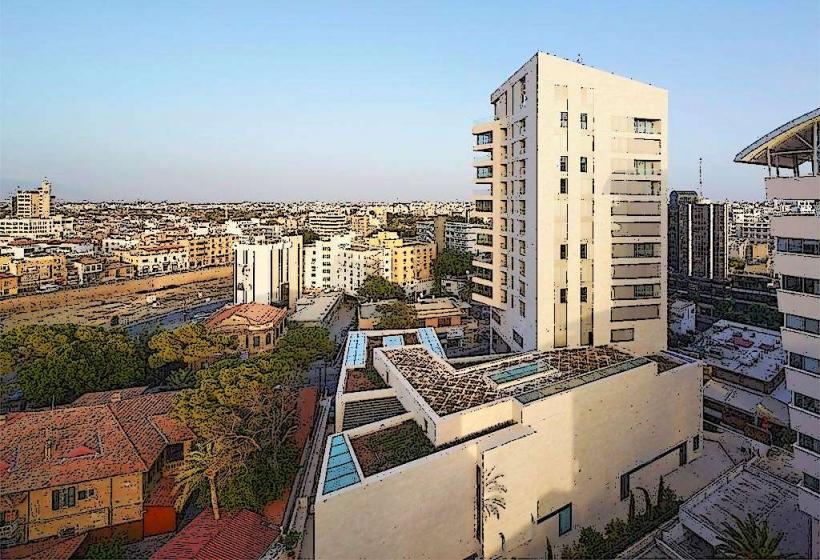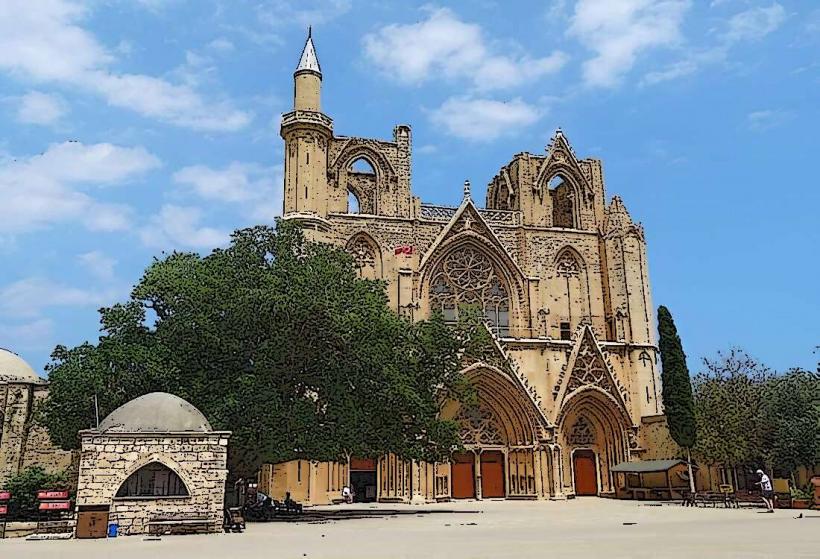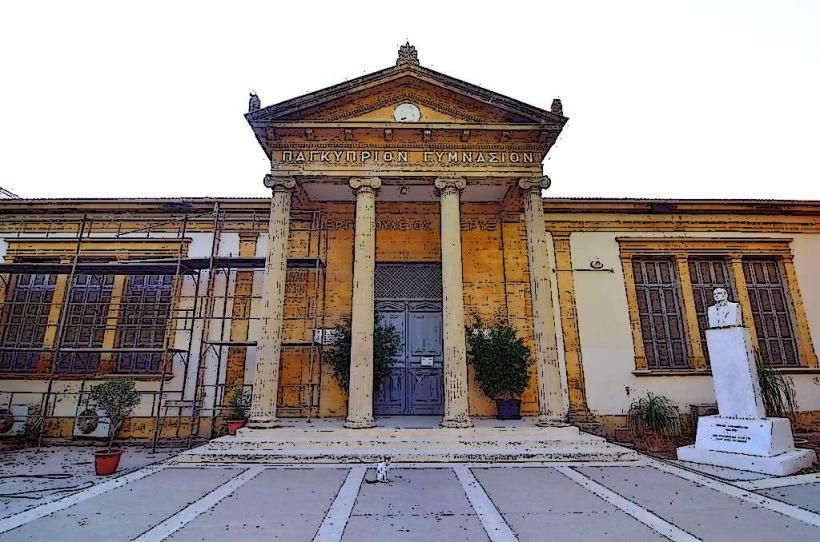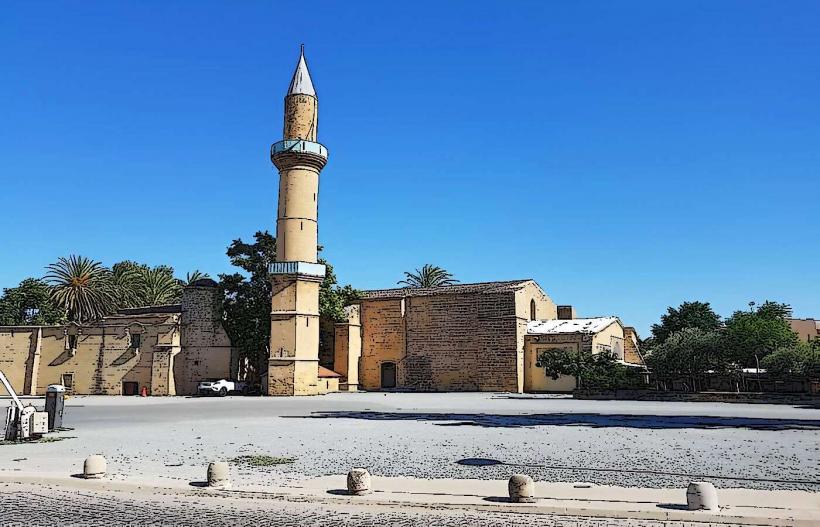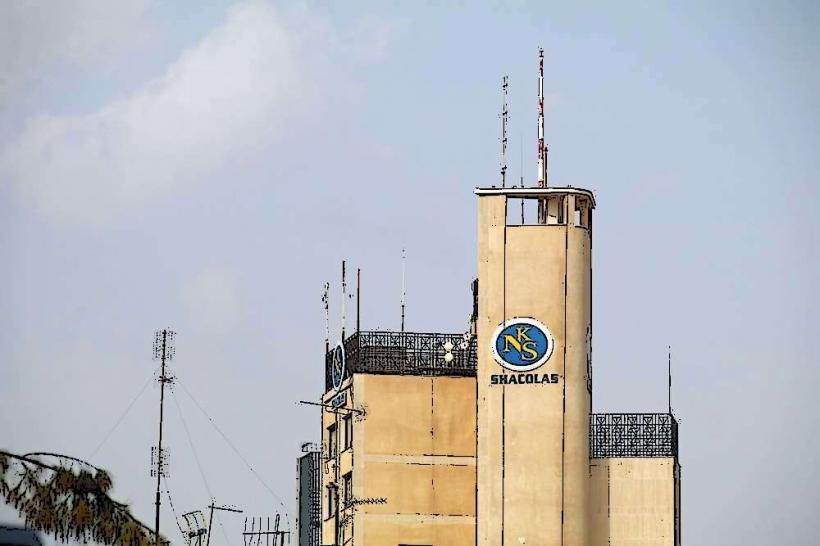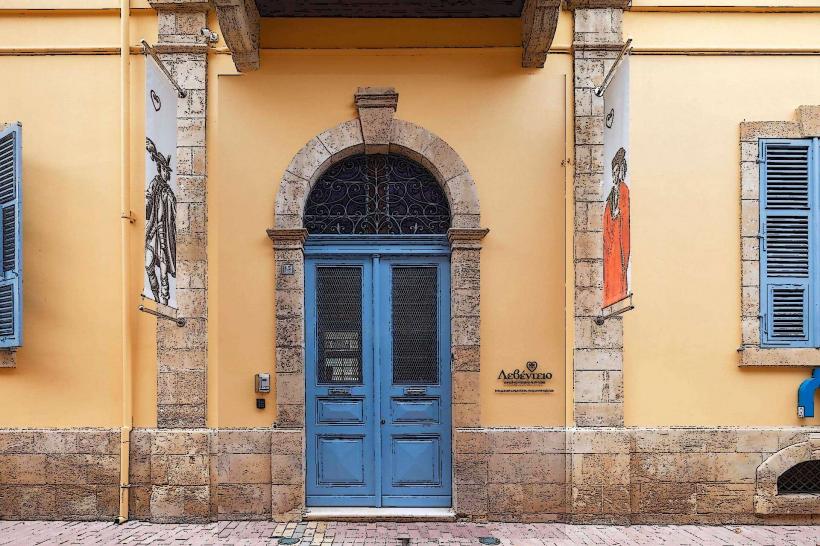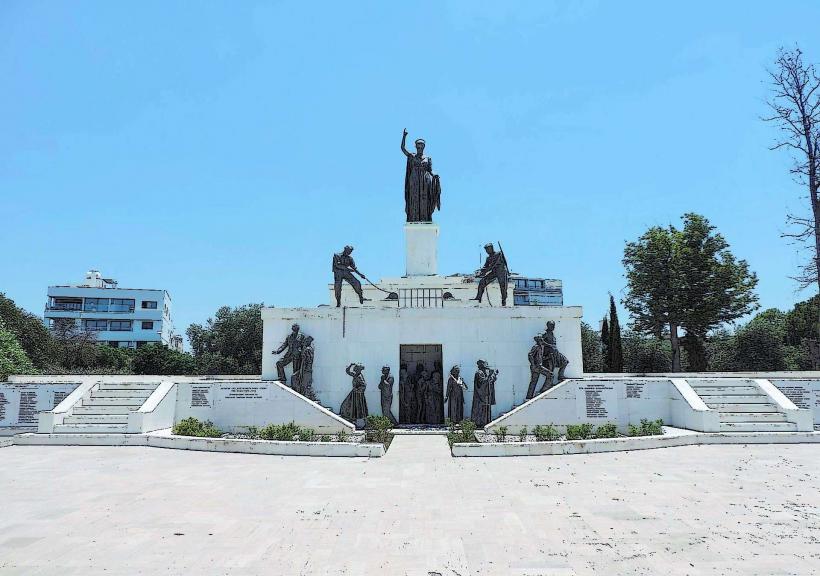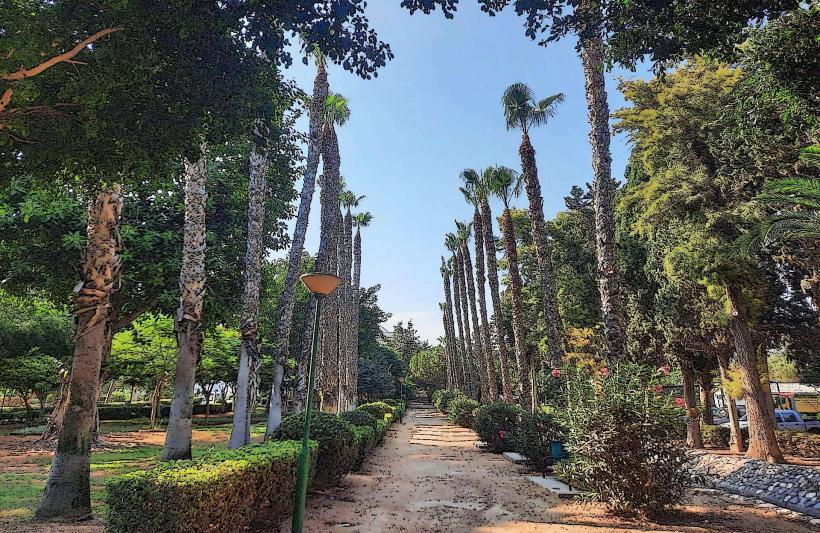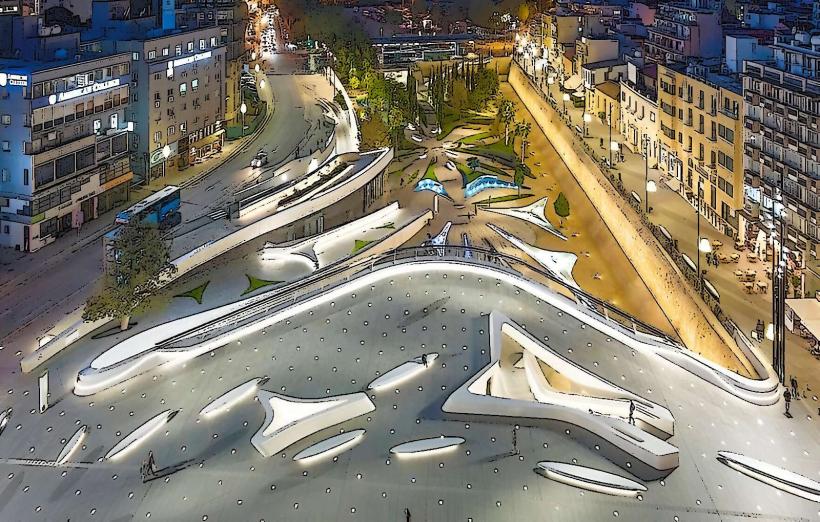Information
Landmark: Selimiye MosqueCity: Nicosia
Country: Cyprus
Continent: Europe
The Selimiye Mosque in Nicosia, Cyprus, is one of the most significant and iconic landmarks on the island, showcasing both architectural and historical significance. Located in the Turkish-controlled part of Nicosia, it stands as a testament to the city's complex cultural heritage and its diverse history.
History and Background
The Selimiye Mosque was originally constructed as the St. Sophia Cathedral during the Frankish (Latin) rule of Cyprus in the 13th century. It was built between 1209 and 1326 and was the most important Gothic church on the island at the time, dedicated to the Virgin Mary. The church served as the cathhedral of the Latin Archbishops of Cyprus.
In 1570, after the Ottoman Empire's conquest of Cyprus, the cathedral was converted into a mosque, and its name was changed to the Selimiye Mosque, named after Sultan Selim II, who was the Ottoman ruler at the time. The transformation involved significant alterations to the structure, combining Gothic architecture with Islamic elements.
Architectural Features
The Selimiye Mosque is an outstanding example of Gothic architecture with Islamic influences, representing a unique blend of two distinct architectural styles.
Gothic Origins: The cathedral was originally built in the Gothic style, characterized by high vaulted ceilings, pointed arches, ribbed vaults, and flying buttresses. The mosque still retains many of these features, particularly its soaring verticality and the impressive vaulted nave.
Minarets: One of the most striking changes made during the mosque's conversion was the addition of two slender minarets. These were added to the structure in the Ottoman period, typical of Islamic places of worship, and they complement the original Gothic design with their slender, graceful forms.
Interior Space: Inside, the cathedral's stained-glass windows were removed and replaced with Islamic calligraphy, and an imposing mihrab (the niche indicating the direction of Mecca) was installed. The mosque’s interior is spacious, with a large open prayer hall, and it remains a place of worship to this day for the local Muslim community.
Decorative Elements: The mosque retains some remnants of its Gothic past, including the intricate stonework and the remains of sculpted religious imagery from the cathedral era. Islamic calligraphy and geometric tilework were added later, blending beautifully with the original design.
Rose Window: One of the most notable Gothic features that remains is the large rose window on the façade, a defining characteristic of Gothic cathedrals. Although it is now partially covered, it still stands as a reminder of the building's Christian past.
Furnishings: The interior of the mosque, typical of Ottoman mosques, includes the mihrab, minbar (pulpit), and a muezzin’s platform for the call to prayer. These elements are beautifully designed, often incorporating intricate woodwork and carvings.
Significance
Religious and Cultural Symbol: The Selimiye Mosque represents the religious and cultural transformation of Cyprus, from its Christian roots under the Franks to its current Islamic character under the Ottomans. This dual heritage makes the mosque an important symbol of the island’s multicultural and complex history.
Architectural Hybrid: The building is one of the finest examples of the hybrid architecture found in Cyprus, combining Gothic European features with Islamic Ottoman influences. It stands as a remarkable example of how different religious and cultural forces have shaped the island's history.
Role in Nicosia: The Selimiye Mosque remains an active place of worship for Muslims in Nicosia. It is also an important symbol for the Turkish-Cypriot community. The mosque's conversion is a reminder of the island’s tumultuous history and the changes in power that have influenced its cultural landscape.
Tourism and Heritage: The mosque is not only a place of religious significance but also a major tourist attraction, particularly for those interested in the historical layers of Nicosia. It is an important site for those exploring the cultural and architectural heritage of the city.
Location and Accessibility
The Selimiye Mosque is located in the heart of the old town of Nicosia, near the city’s central square. It is situated in the Turkish-controlled area of the city, which is accessible via the Ledra Street checkpoint, one of the crossing points between the Greek and Turkish sides of Nicosia. The mosque is a key site for those exploring the historical and religious layers of the city, with its Gothic and Ottoman architecture offering visitors a unique insight into the city’s diverse past.
Visitor Experience
While the mosque is an active place of worship, it is open to tourists outside of prayer times. Visitors can explore its stunning architecture, both from the exterior and interior, and gain a deeper understanding of the historical context that led to the mosque's transformation. There are also occasional guided tours available that provide insights into the building's history and significance.
Conclusion
The Selimiye Mosque stands as one of the most remarkable examples of the fusion of Gothic and Ottoman architectural styles in Cyprus. Its history as St. Sophia Cathedral and its subsequent transformation into a mosque reflect the dynamic cultural and religious changes Cyprus has experienced over the centuries. Today, it is both a religious site and a symbol of the island’s rich, multi-layered heritage, attracting visitors who are interested in the complex history of Nicosia and Cyprus as a whole.

